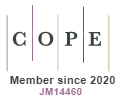Multiculturalism in education: the school attendance of Bolivian and descendant students
DOI:
https://doi.org/10.5585/dialogia.N29.8802Keywords:
Bolivians. Socio-educational relationship. Integration.Abstract
A qualitative, ongoing study aims at observing and analyzing interpersonal and educational relationships between teachers and students, Bolivian immigrants and descendants and among the other students from the elementary school II, 8th and 9th grade, in the classroom and in the common dependencies of a state school in the central region of São Paulo. It is based on the different models of multiculturalism, especially the assimilationist, differential and interactive or intercultural. The method used at this stage was the systematic observational, with field record. The results showed that there is a gap between Bolivian and descendant students and teachers, and with other students, phenomena that only allow integration because they are in a situation of exclusion and without changing social hegemony. The imperceptibility of these students is evident and there is a restricted configuration of strategies for scenario changes.Downloads
Downloads
Published
2018-08-24
How to Cite
DAL MAS DIAS, Elaine Teresinha; SOUZA NETO, João Clemente. Multiculturalism in education: the school attendance of Bolivian and descendant students. Dialogia, [S. l.], n. 29, p. 83–94, 2018. DOI: 10.5585/dialogia.N29.8802. Disponível em: https://periodicos.uninove.br/dialogia/article/view/8802. Acesso em: 3 apr. 2025.
Issue
Section
Dossiê Temático: Educação e Multiculturalismo
Views
- Abstract 406
- PDF (Português (Brasil)) 649







